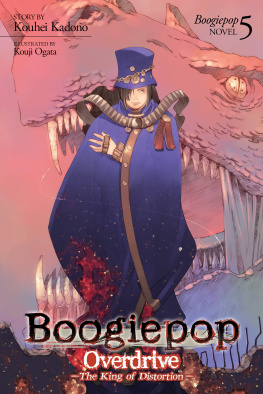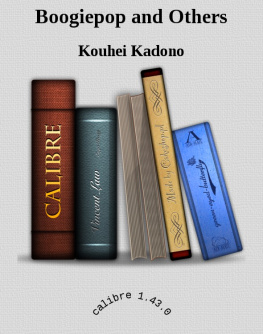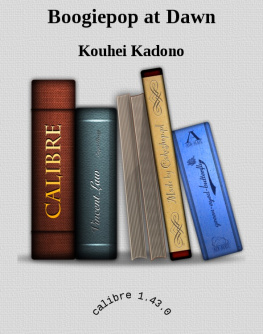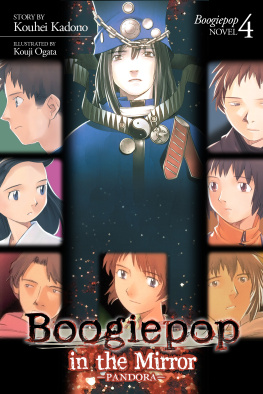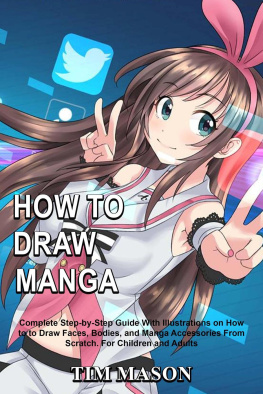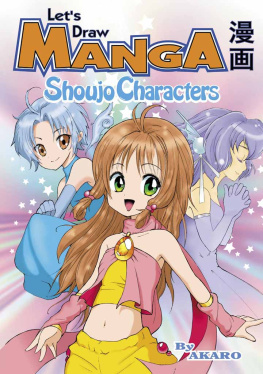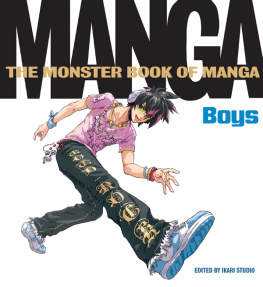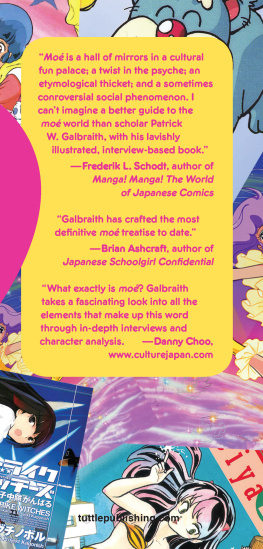
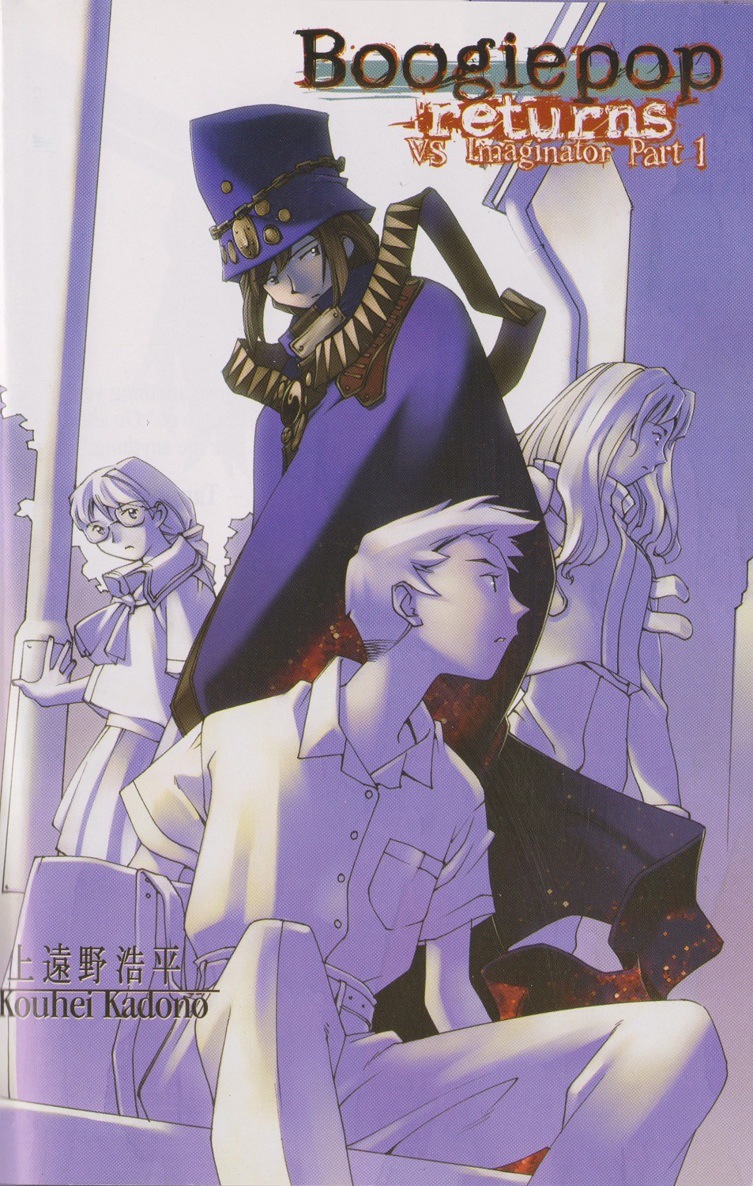
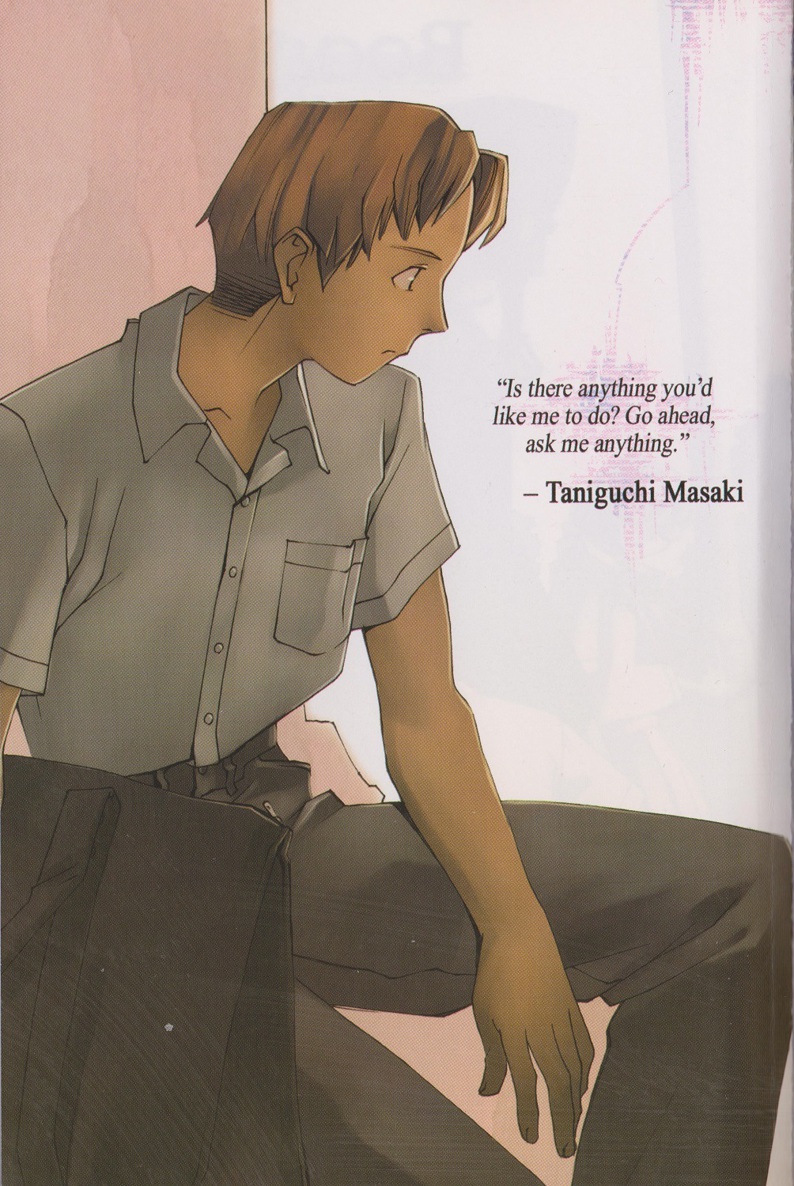
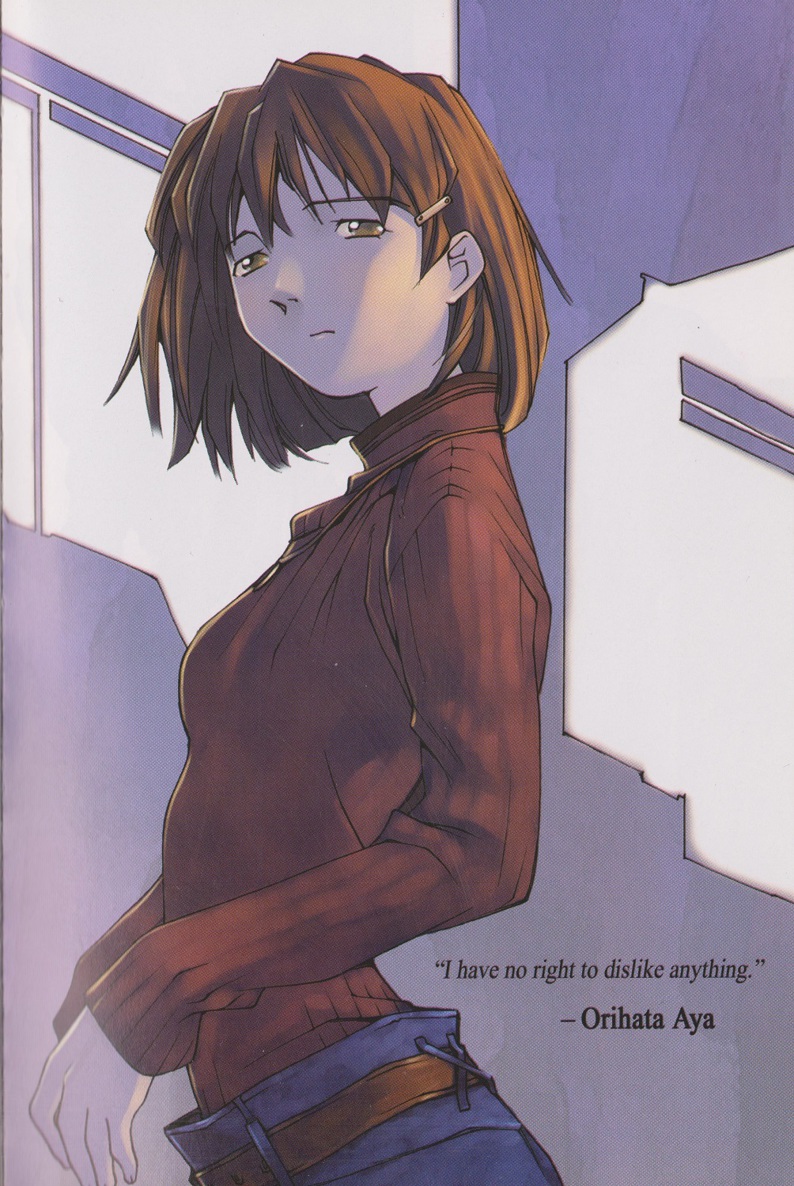
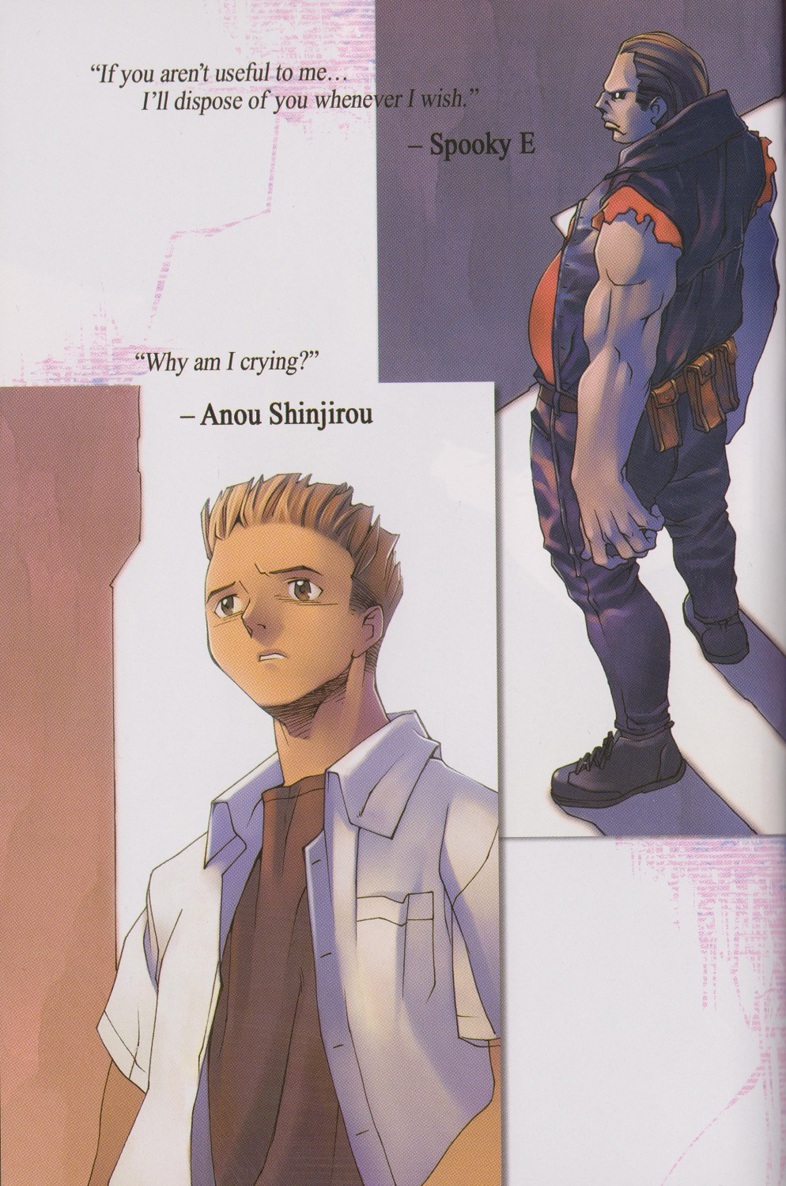

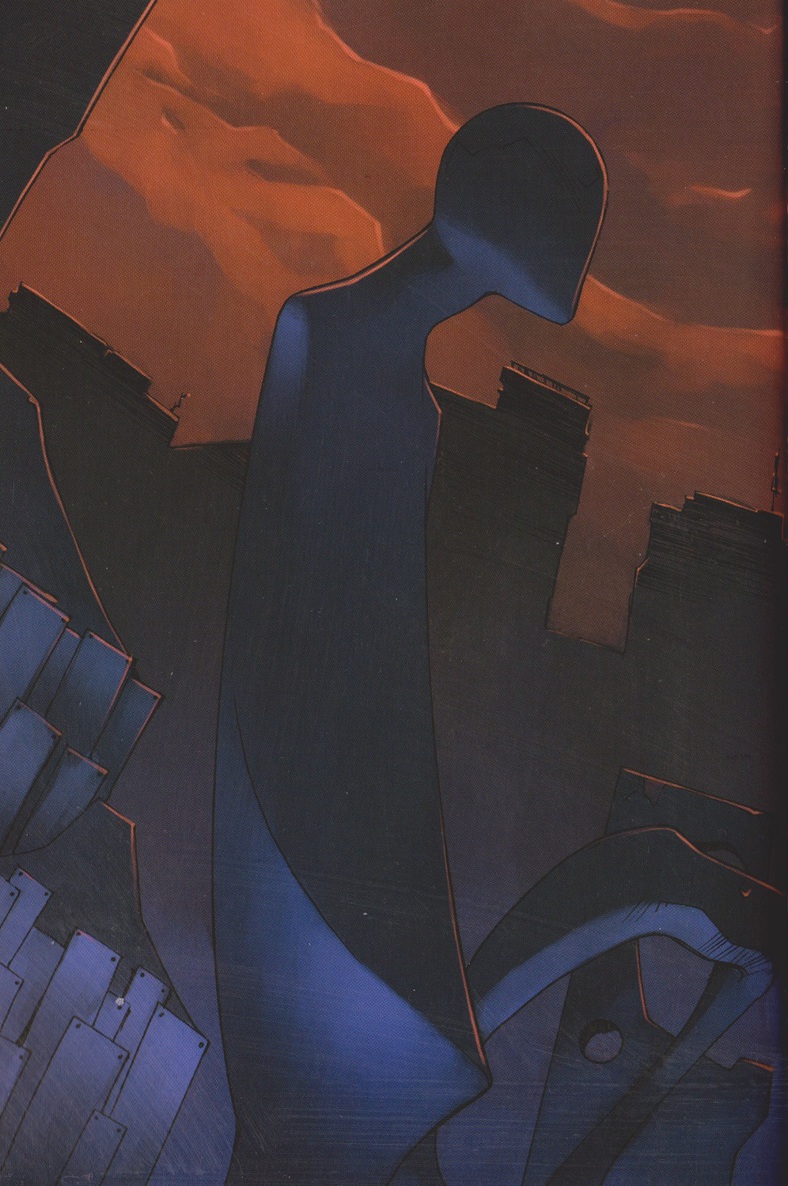
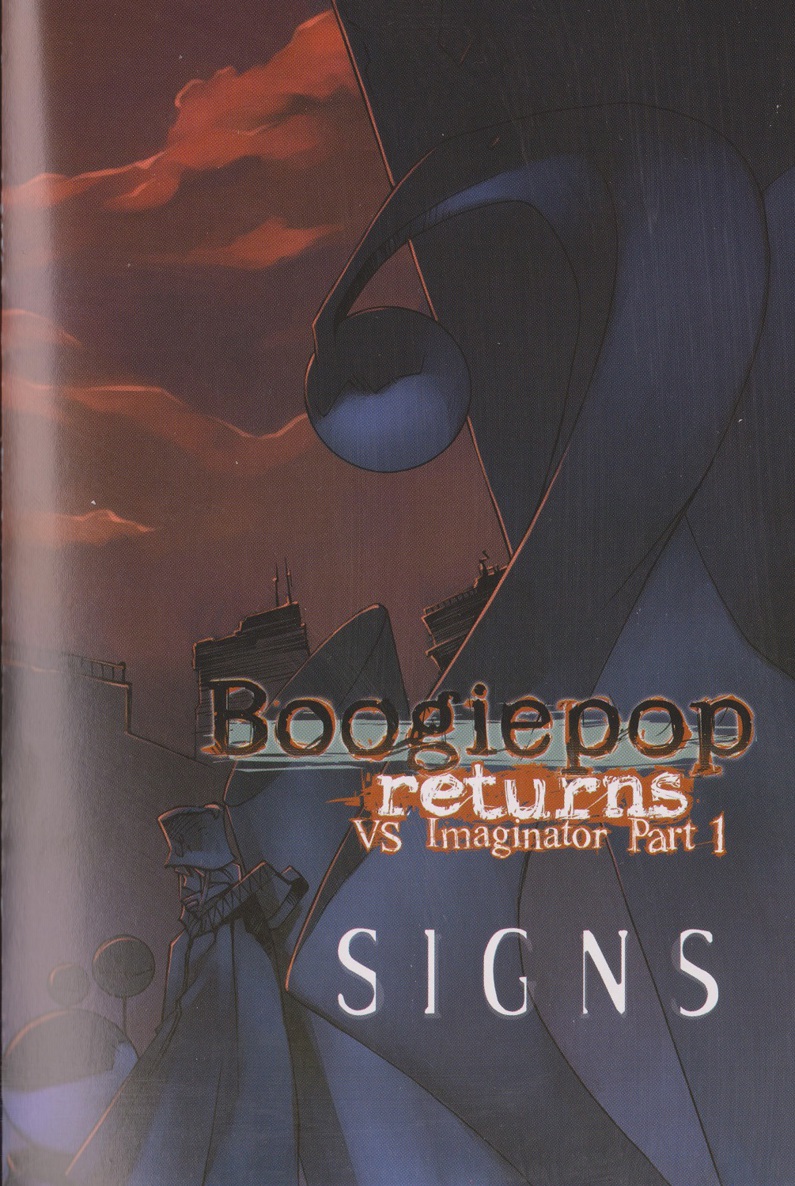
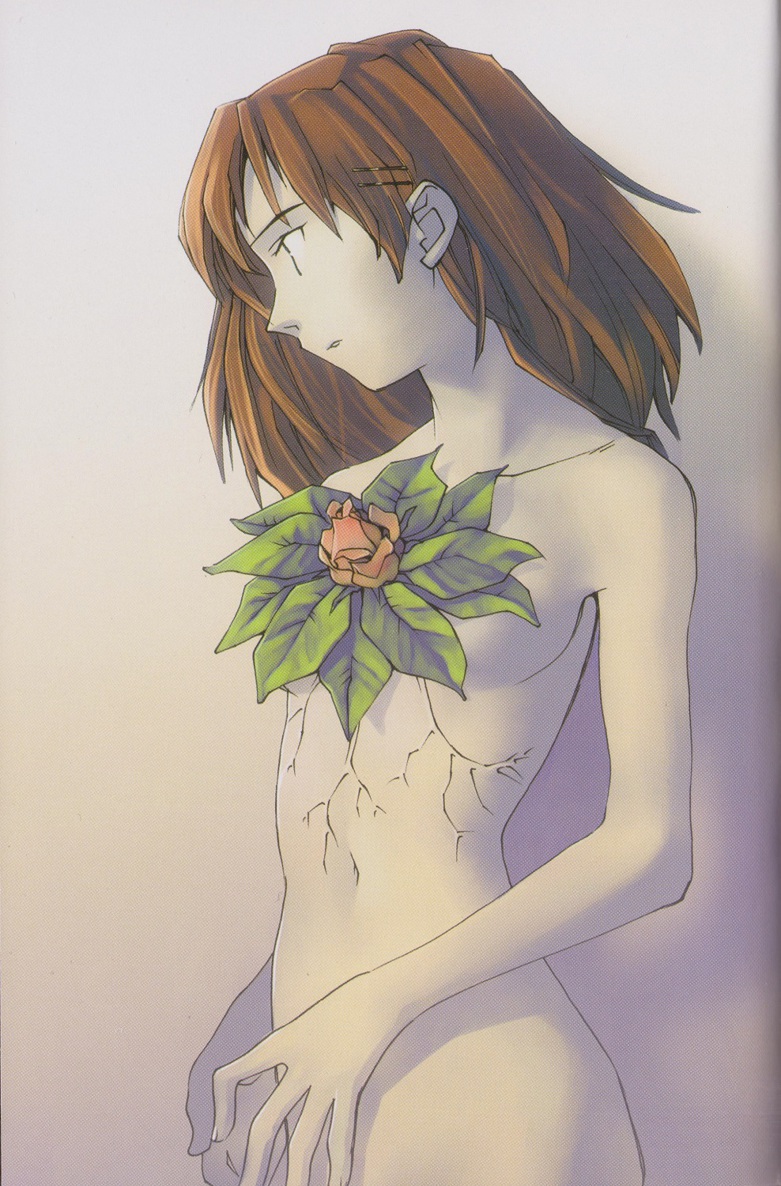
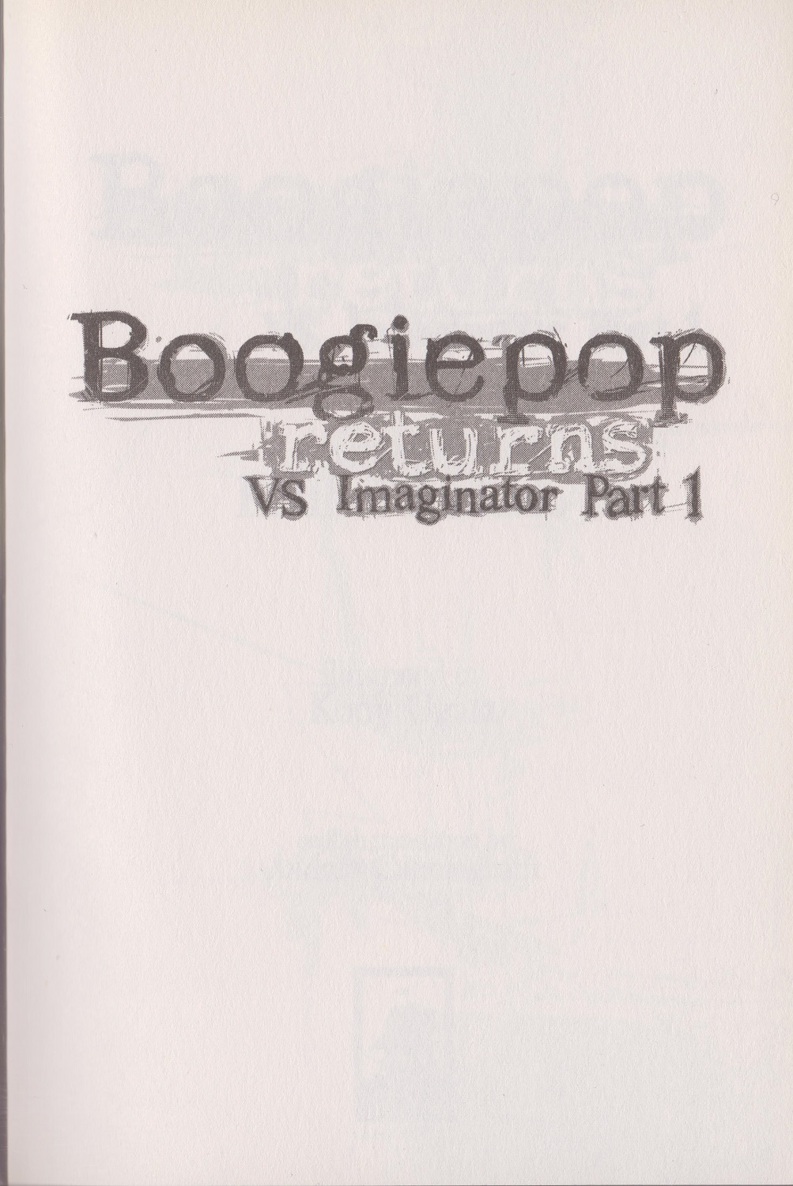
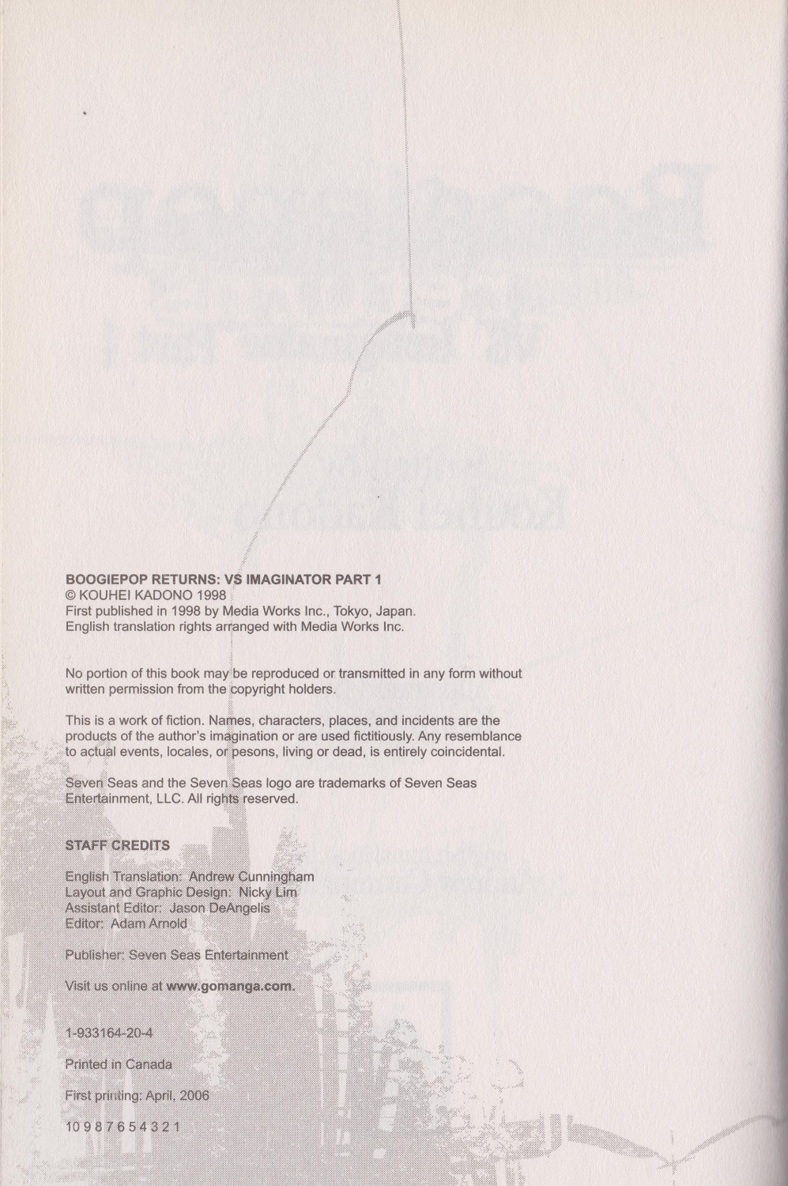
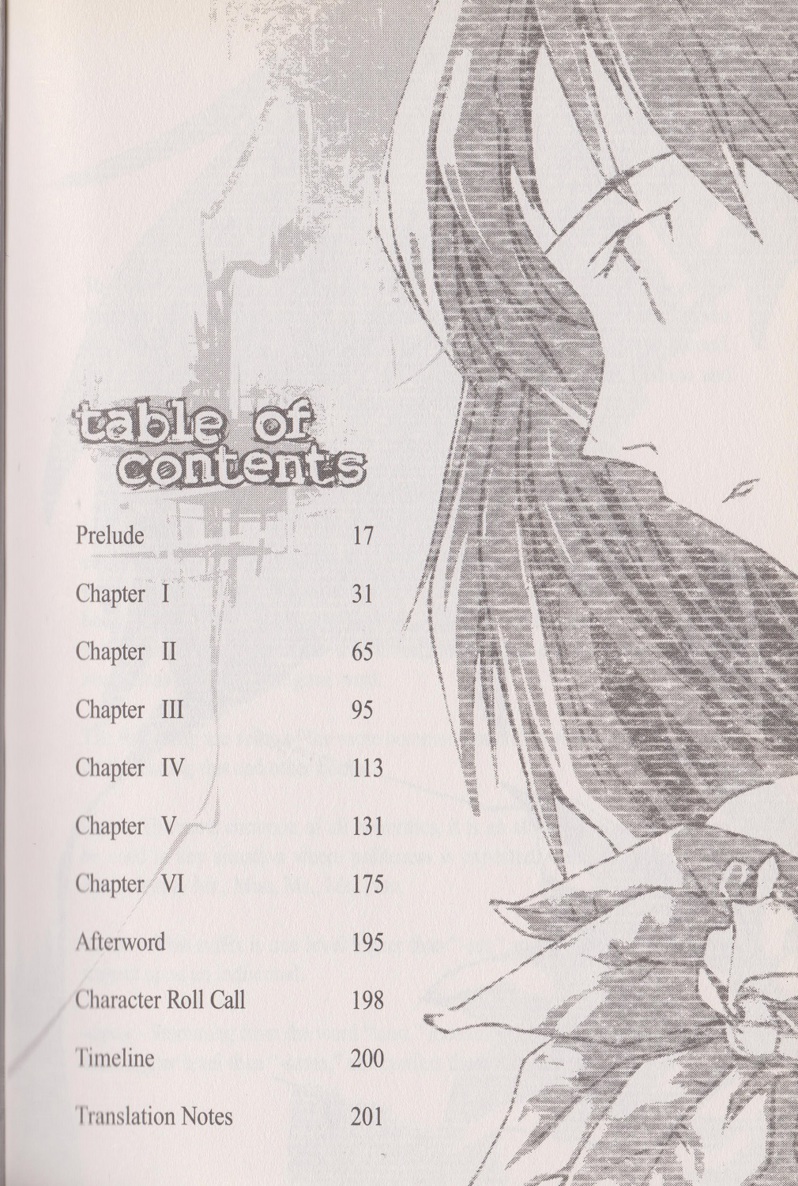
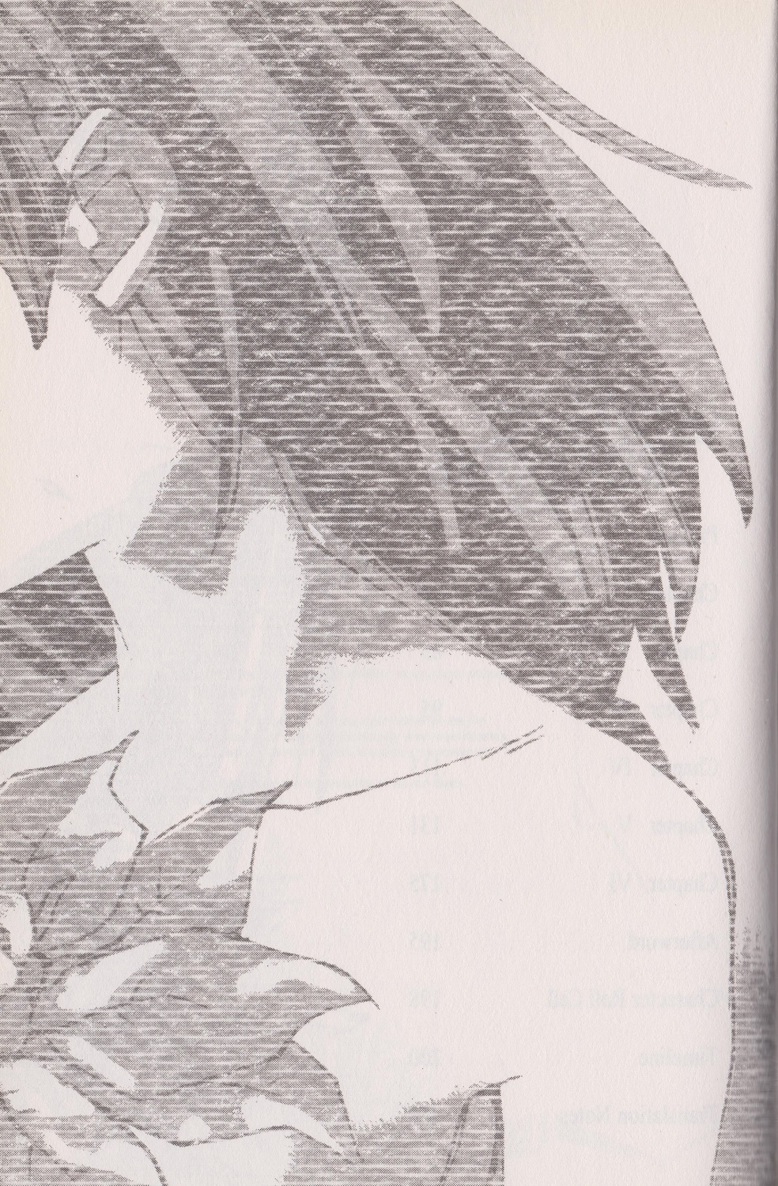
SEVEN SEAS COMMITMENT TO
TRANSLATION AUTHENTICITY
JAPANESE NAME ORDER
To ensure maximum authenticity in Seven Seas translation of Boogiepop Returns: VS Imaginator Part I, all character names have been kept in their original Japanese name order with family name first and given name second.
For copyright reasons, the names of Boogiepop creator Kouhei Kadono and illustrator Kouji Ogata appear in standard English name order.
HONORIFICS
In addition to preserving the original Japanese name order, Seven Seas is committed to ensuring that honorifies-polite speech that indicates a persons status or relationship towards another individual-are retained within this book. Politeness is an integral facet of Japanese culture and we believe that maintaining honorifics in our translations helps bring out the same character nuances as seen in the original work.
The following are some of the more common honorifics you may come across while reading this and other books:
-san - The most common of all honorifics, it is an all-purpose suffix that can be used in any situation where politeness is expected. Generally seen as the equivalent to Mr., Miss, Ms., Mrs., etc.
-sama - This suffix is one level higher than -san and is used to confer great respect upon an individual.
-dono - Stemming from the word tono, meaning lord, -dono signifies an even higher level than -sama, and confers the utmost respect.
-kun - This suffix is commonly used at the end of boys names to express either familiarity or endearment. It can also be used when addressing someone younger than oneself or of a lower status.
-chan - Another common honorific. This suffix is mainly used to express endearment towards girls, but can also be used when referring to little boys or even pets. Couples are also known to use the term amongst each other to convey a sense of cuteness and intimacy.
Sempai - This title is used towards ones senior or superior in a particular group or organization. Sempai is most often used in a school setting, where underclassmen refer to upperclassmen as sempai, though it is also commonly said by employees when addressing fellow employees who hold seniority in the workplace.
Kouhai - This is the exact opposite of sempai, and is used to refer to underclassmen in school, junior employees at the workplace, etc.
Sensei - Literally meaning one who has come before, this title is used for teachers, doctors, or masters of any profession or art.
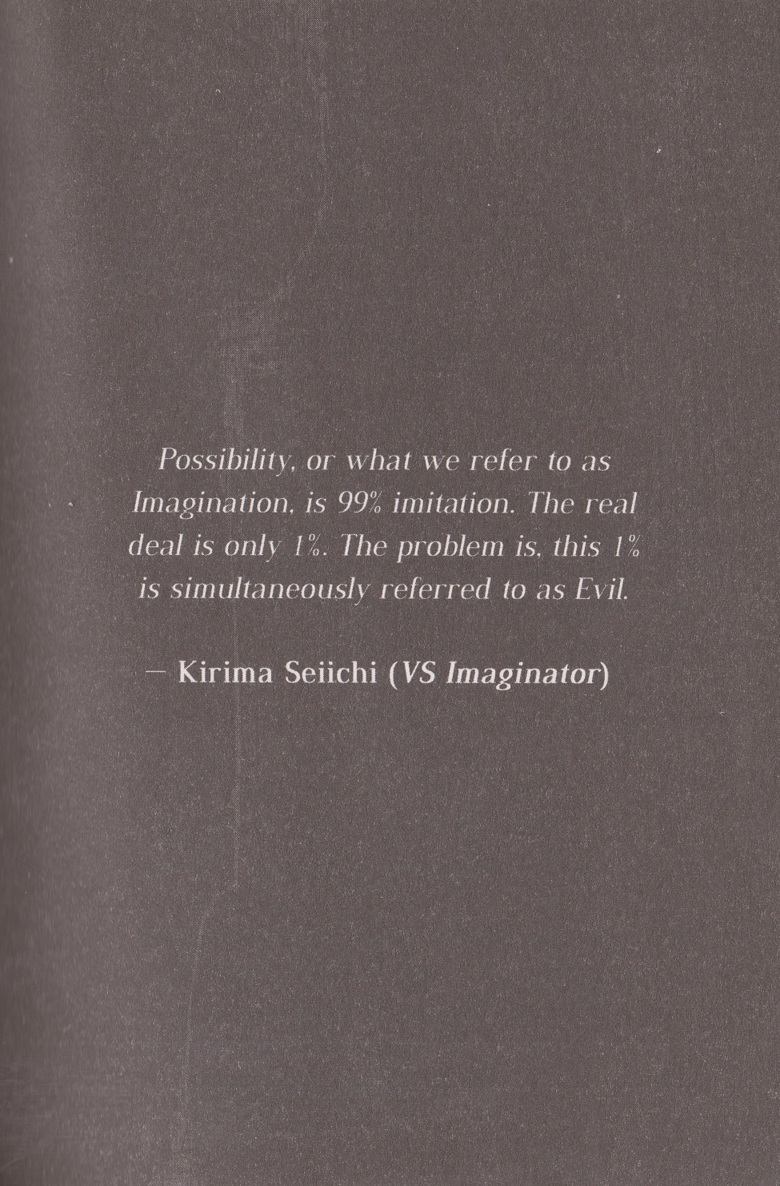
Prelude
On a very cold and snowy day in early March, a girl climbed to the top of our prefectural high school, Shinyo Academy,
and proceeded to throw herself off of the roof of the building.
Her
name was Minahoshi Suiko. She was only seventeen.
Mariko-san, what do you like most? she asked me abruptly one day, back when she was still alive.
Without putting much thought into it, I gave her the name of a pop star that everyone was listening to.
Hmm...really?
Yeah. Hes kinda cool, I said offhandedly.
Suiko-san took a deep breath, faced the setting sun, and began to whistle.
Our school is up in the mountains, and its a place where most students end up taking the bus to get to or from. On that particular
day, Suiko-san and I had decided to walk home together, and we
had the streets all to ourselves.
The tune she whistled turned out to be the pop stars most popular song. Suiko-san was clearly an exceptional whistler. She made the melody seem quite beautiful, to the point that it sounded much, much better than the actual song itself. When she finished, I couldnt help but applaud.
That was amazing! Suiko, youre really good!
Not really. If you liked it, its simply because you already had a predisposition to liking it in the first place.
She was the type of person who said dramatic things like that, and it came to her quite naturally.
You must have practiced, though. Do you play an instrument?
No, just by ear.
Then you must have perfect pitch or something. Thats so awesome! What do you usually listen to?
Stuff nobodys ever heard of.
Like what?
Mm, for example, and she took another breath, and began a different piece.
This time, it was more humming than whistling, as if she were a magical instrument that could reproduce any melody in existence.
"......!" I was so stunned just listening to her that I forgot to breathe.
There was simply no comparison to the first song. There was a resonance in my chest, a vibration in my heart that somehow made me feel very sad, all of a sudden. It was a strange melody-both rhythmical and powerful.
When she finished, I couldnt applaud. I was too choked up, with tears welling up in my eyes.
"...Whats wrong? Didnt you like it?
No...no! It was...it was...uh, I feel sort of embarrassed now.
Its like my song was just an imitation of real music...
I thought you liked that song?
N-no, I think I couldnt have, really. When I heard your song just now, it felt like...this is the first time that Ive ever really known that I liked a piece of music. And it didnt have anything to do with whats popular or trendy! I exclaimed, getting worked up.
Thats nice, Suiko-san said, smiling. She was as beautiful, if not more so, than the song itself. She stood there, backlit by the red light of the evening sky. It was like I was seeing the silhouette of a goddess.
What song was that? I asked.
She giggled. You wont laugh?
Why would I?
The name of the piece is Salome. Its from a ballet.
Whats odd about that?
The composer is Ifukube Akira.
Who?
Hes most famous for writing the soundtracks to monster movies, Suiko-san said, putting her hand to her mouth, shoulders trembling as she laughed.
Next page

